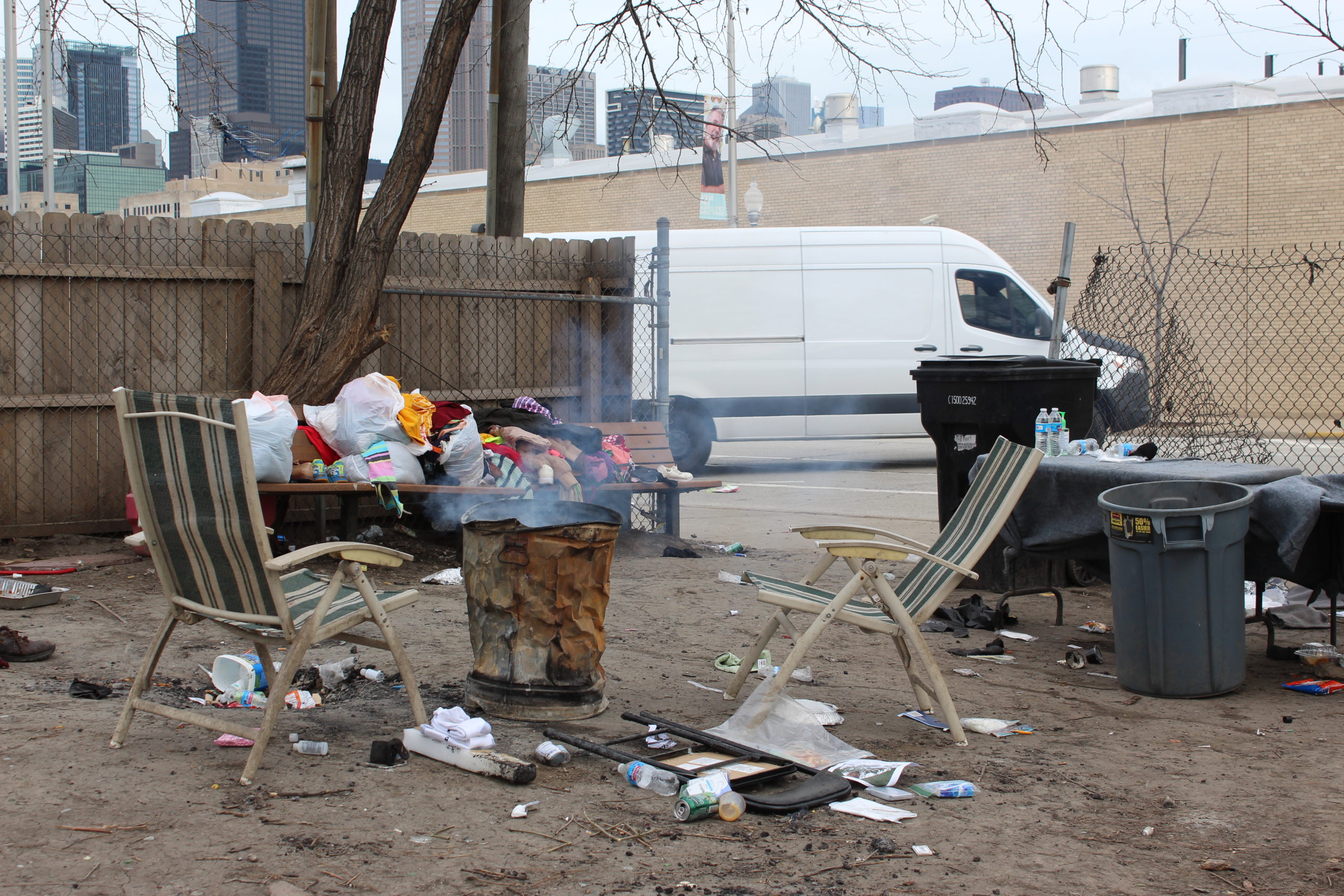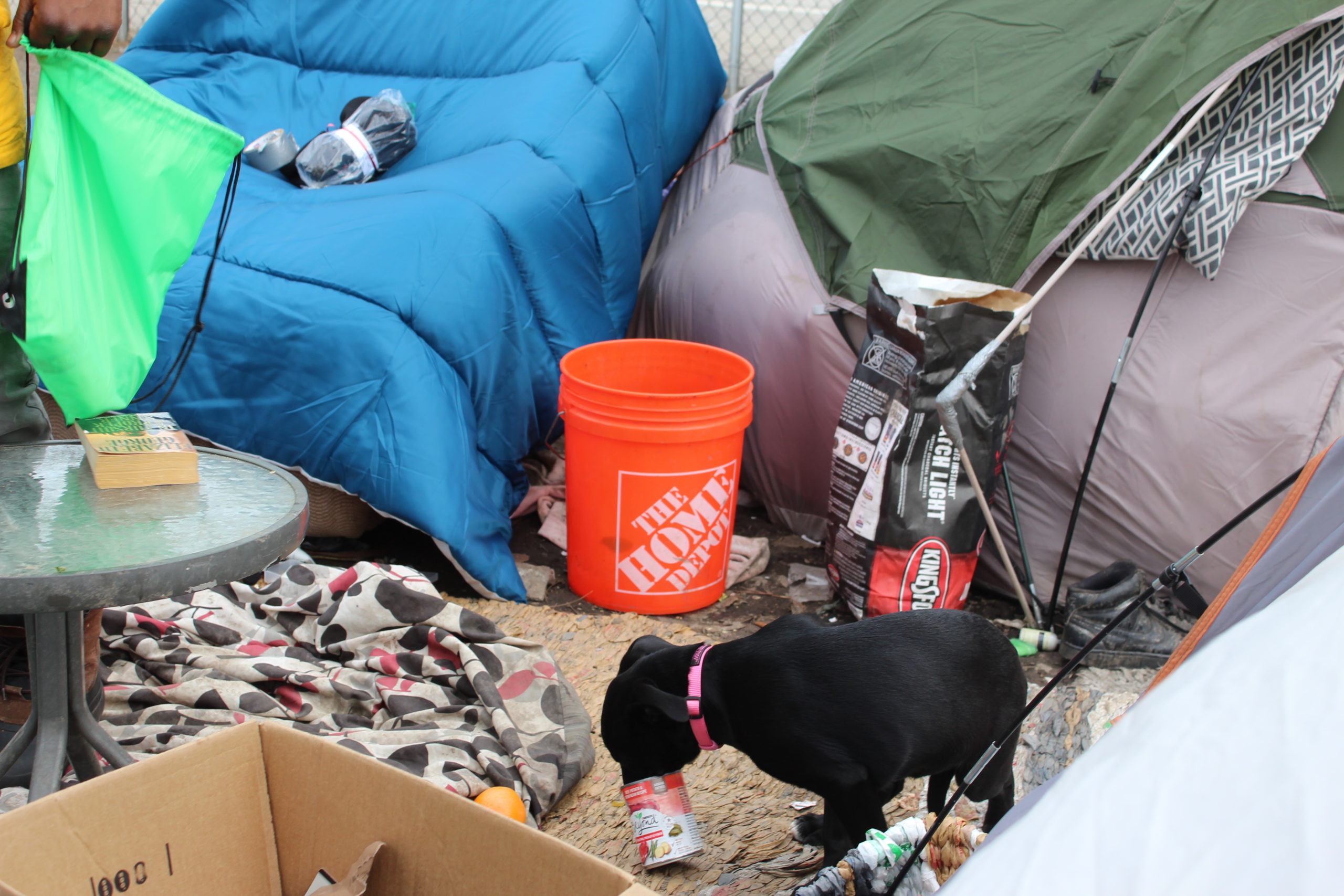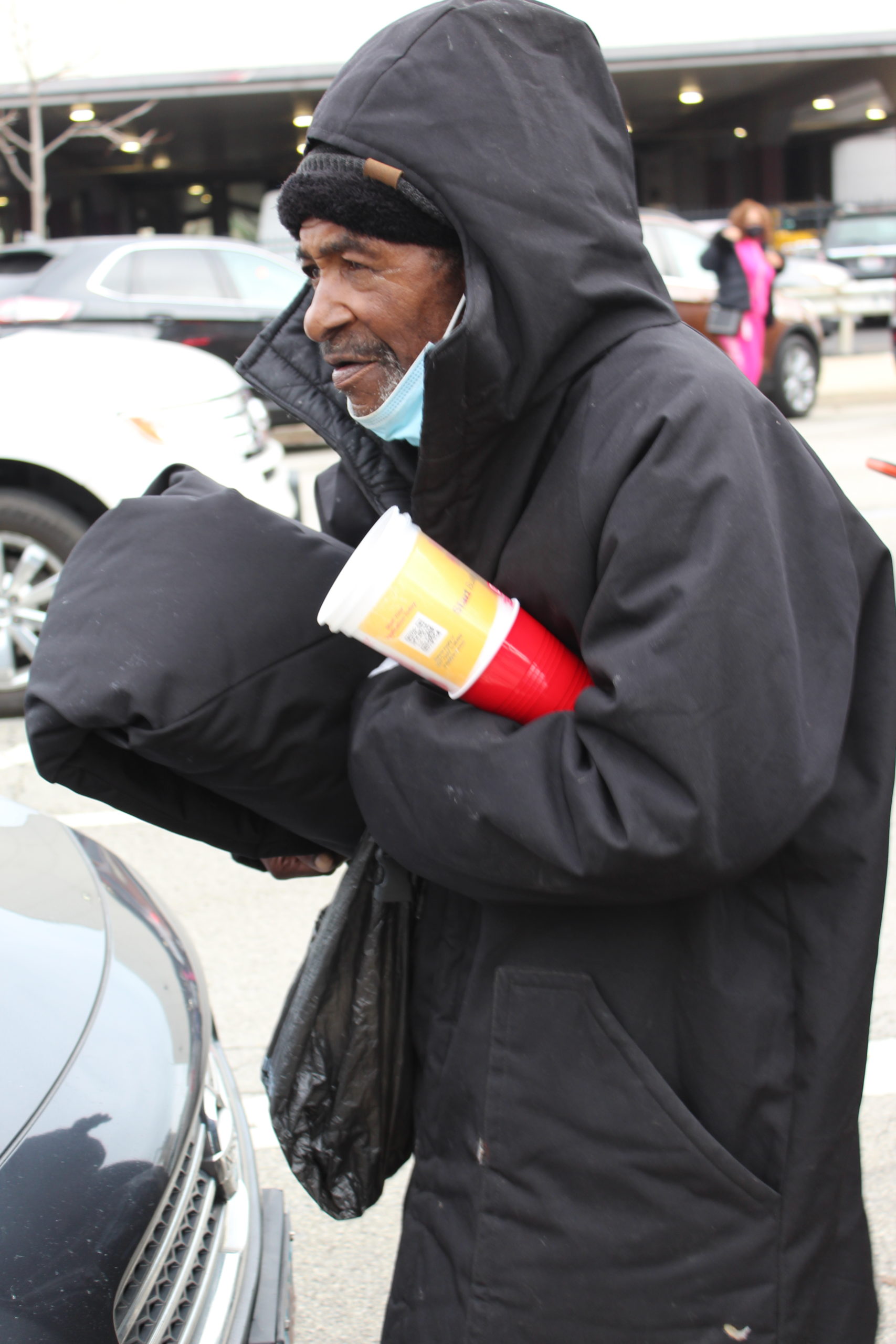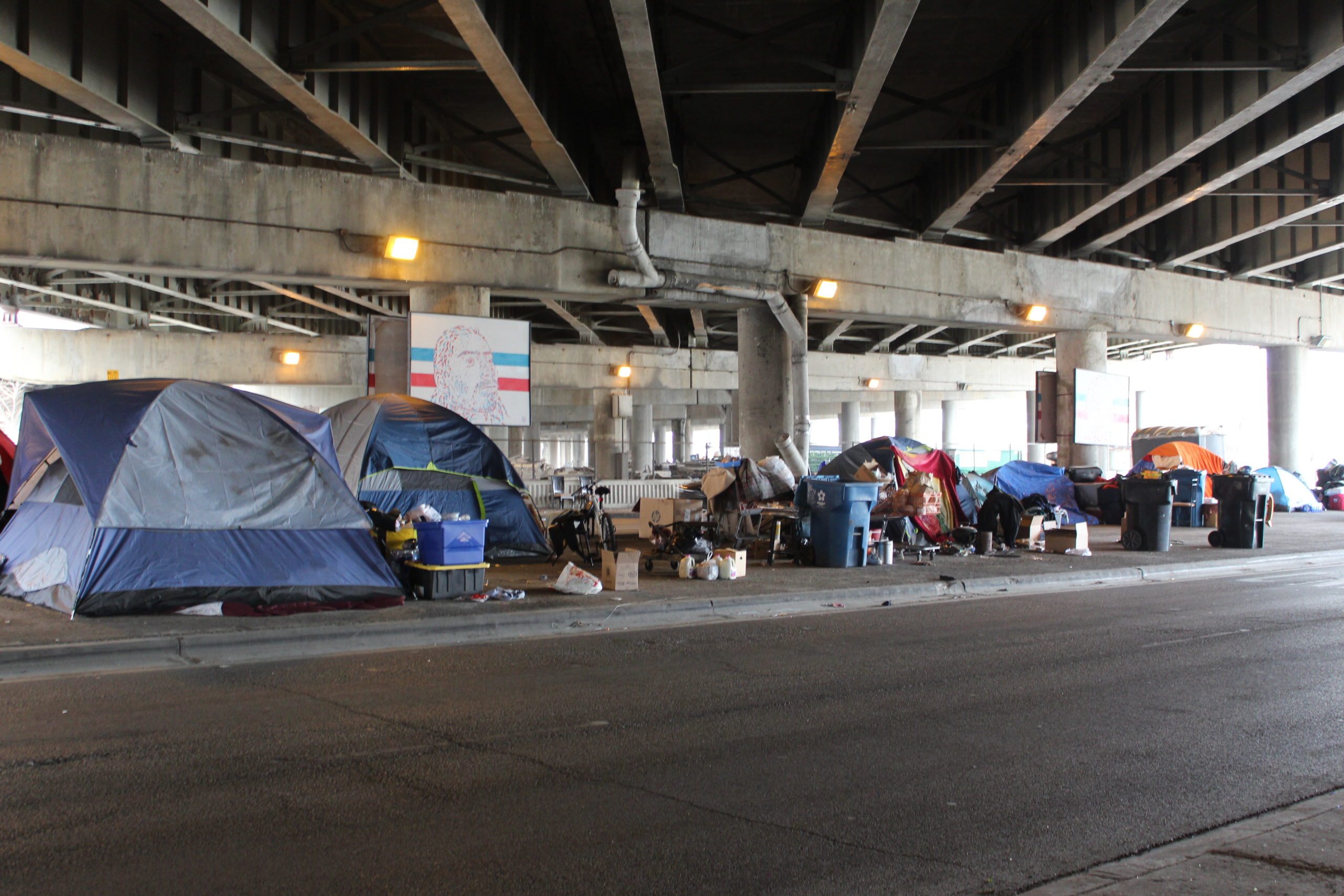When Bishop Tavis Grant, national field director for the Rainbow PUSH Coalition, and National Youth Director Reverend Cameron Barnes took 48 blanket coats to two tent city sites last Thursday, December 23, Grant came to a startling conclusion—homelessness is a way of life for those living on Chicago streets.
It was a Christmas Grant won’t soon forget. When he arrived at the Roosevelt and Eisenhower Expressway Tent City and the Chinatown Tent City at 375 W. Cermak Road, few of the homeless were in their tents.

But those who were there made it crystal clear that this location was their home, with one man at the Eisenhower Expressway Tent City telling Rainbow PUSH Coalition officials and the media, “You are standing in my living room.”
The young man, who was well dressed, expressed pride in his “living room” housing conditions. He had a table, two chairs and a dog that was eating food out of an open tin can. This was his home.

The different colored tents dotted the sliver of parkland along the Eisenhower Expressway with a backdrop of some of Chicago’s finest high-rises looming in contrast. It was a visual comparison of Chicago’s two cities, poverty and wealth, with no in-between when it comes to homelessness.
“Homelessness has become for many a way of life, a culture, if you will, to survive year-after-year, particularly the older ones who have found a sense of community, a sense of connection to where they’ve built relationships and systems of survival in means of helping others,” said Grant.
“Many of them feel committed to others they help save, help survive, and they redeem themselves as a sense of redemption among them in their own culture that they own, they value, and they won’t allow outsiders to violate,” Grant said.
“In many ways, they see us as outsiders, in spite of our wanting to help them because many people don’t do it for the right reason, the right motive, and they don’t want to be used as a pawn toward someone else’s self-aggrandizement,” Grant reasoned.
“You learn that by connecting with them and taking the fact that this is a life for them as demeaning as it can be, it is their life,” he said.

While the common denominator was poverty and homelessness, there was a difference between the two tent cities visited by the Rainbow PUSH Coalition staffers.
Garbage littered the landscape of the Roosevelt/Eisenhower Tent City, and there was fire burning in a garbage can at the end of that site complete with chairs. With winter here, that is what they need to keep warm. Someone had dropped off a box of canned goods, but they had no can openers, so the box just sat there as a constant reminder among people who need food to survive.
However, at the Chinatown Tent City, the tents were more orderly and quite colorful. Some of the residents said they had been there a long time and that no one bothered them. They even had a porta-potty. The Roosevelt/Eisenhower Tent City had none.
That was troubling to Grant who said, “Sanitation is a huge problem, and not just in Chicago but around the country.”
He said providing the homeless with portable toilets is not on political agendas but should be provided along with waste management “for people so they can curtail the spread of disease particularly COVID-19 and other infections.” Grant said there should be portable toilets at each of Chicago’s tent cities.
“I ask that they put in porta-potties at these locations like Tent City because it is equivalent to saving lives. You have to contain the spread of infections. Cities like Chicago must bear the brunt and the responsibility of the disease and the deaths that accompany these situations where the homeless have to put their waste somewhere.”
The waste, Grant said, “should be removed regularly like in the residential settings to prevent the spread of COVID-19 and effectively contain the virus.”
Referring to the homeless, Grant said, “They are doing what they can do reasonably well without the needed resources, but they need the additional sanitation of porta-potties with waste management.”
“We got to insist that these persons get those types of resources because they not only become a danger to themselves but also to others, given this era of COVID-19. Timing is vital,” Grant stressed.
Bishop Grant and Reverend Barnes also told the media that Reverend Jesse Jackson and his staff are pulling together resources to help eliminate Chicago’s tent cities, including finding funds to build affordable housing and the resources needed to help the homeless become productive citizens of Chicago.
Jackson will roll out his homeless plan around Dr. King’s birthday next month during the annual Dr. King celebration, on January 17, 2022. It is a continuation of Dr. King’s Poor People’s Campaign and his continuous fight to end homelessness in America.






